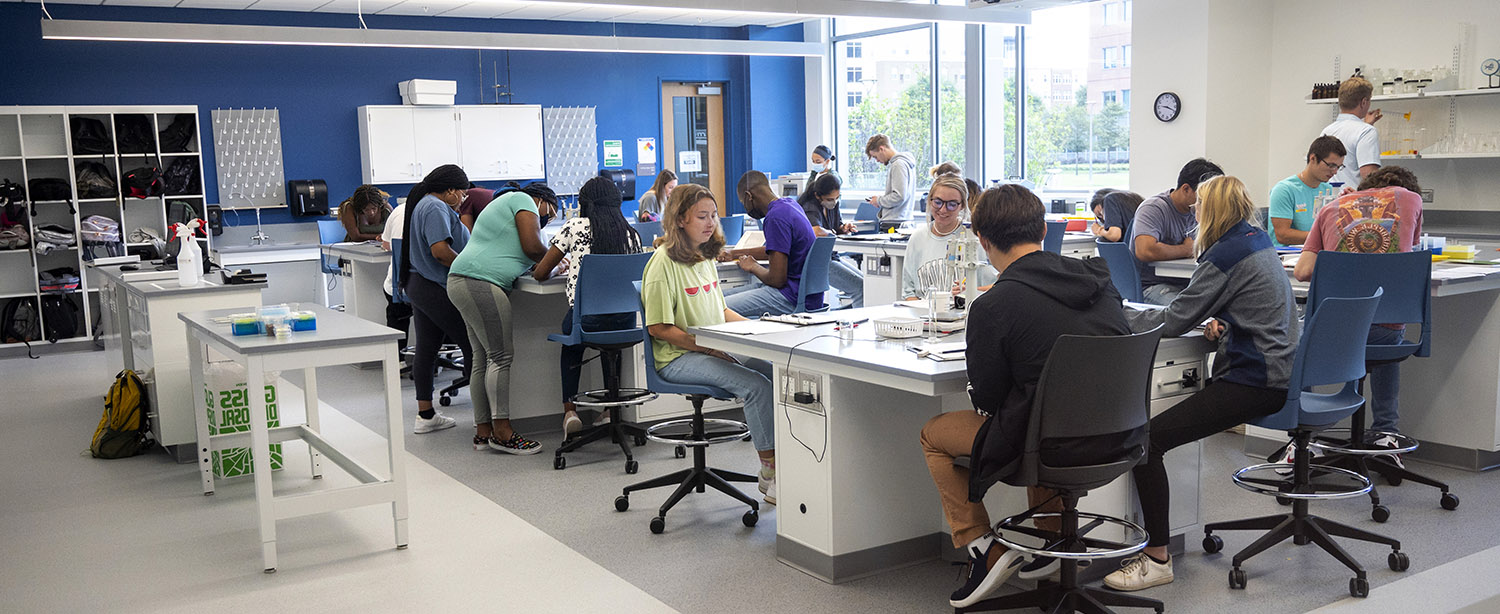Creativity, Discovery, Engagement
Ignite Your Curiosity

- Augusta University
- Science & Mathematics
- Premedical Information
Premedical Information
Medical School Requirements | Application Services | Standardized Tests | PreMed Advisors
Medical School Requirements
Most medical schools have similar admission application, such as a bachelors degree (any subject), prerequisite courses, MCAT exam, CASPer exam, references and a personal statement. There is also an expectation of significant experience in medical settings. Typical backgrounds for successful students are the Medical College of Georgia are detailed on their Fact Sheet.
Each school may have slightly different requirements. Consult your target school for more details: Medical College of Georgia at Augusta University, Mercer University School of Medicine, Medical University of South Carolina, and Emory School of Medicine.
To prepare undergraduate students for med school, Augusta University offers a Premedical Program of Study and the Professional Scholars Program.
"Given the highly competitive nature of the applicant pool, applicants with GPAs less than 3.0, or MCAT scores less than 496, are not considered competitive for interview."
In addition to medical schools, osteopathic medicine is relatively new in the South although a well-established version of medical practice in the North. Doctors of Osteopathic Medicine (DO) take all the same licensure exams as medical doctors and have all the same privileges including: prescription drugs, surgery, and the use of technology to diagnose disease and evaluate injury.
It also offers the added benefit of hands-on diagnosis and treatment through a system of treatment known as osteopathic manipulative medicine. Osteopathic medicine emphasizes helping each person achieve a high level of wellness by focusing on health promotion and disease prevention. Schools commonly targeted by AU students include: Philadelphia College of Osteopathic Medicine (PCOM) and Edward Via College of Osteopathic Medicine (VCOM).
Contact Us
College of Science & Mathematics
Health Sciences Campus
Science & Mathematics Building
706-729-2259
Helpful Events
- The 2022 AMCAS application portal is now open. Please note that the application deadline for many medical schools is in early October or early November.
- Please review the AAMC Application Checklist before applying for medical schools.
Other Pre-Professional Studies
Application Services
Most medical schools use some type of on-line application service. Student must complete their application in the summer (or EARLY) fall the year before they plan to start medical school. For example, to start medical school in August 2021 the application must be complete by Fall 2020. Most application services open in May and close in December. Earlier application submission is STRONGLY recommended.
American Medical College Application Service (AMCAS)
Most medical schools in the US use this application service. Application requirements include:
- personal (identifying) information
- personal statements
- medical, leadership and volunteer experiences
- test scores (MCAT & Casper)
- reference letters
It also conducts a criminal background check, verifies transcripts, and calculates GPAs to its standards.
Texas Medical College Application Service (TMCAS)
This application service serves the public medical schools in Texas and collects essentially the same information as AMCAS.
American Association of Colleges of Osteopathic Medicine Application Service (AACOMAS)
Application materials are similar to those in AMCAS and it is recommended that you have shadowed a DO.
Standardized Tests
MCAT
Medical College Admissions Test (MCAT), organized by Association of American Medical Colleges (AAMC), is required by all medical schools. It is a standardized, multiple-choice 7.5 hour exam (with breaks). It consists of 4, equally weighted sections:
- Biological and Biochemical Foundations of Living Systems:
- Chemical and Physical Foundations of Biological Systems;
- Psychological, Social and Biochemical Foundations of behavior; and
- Critical Analysis and Reasoning Skills.
Scores range from 118 to 132 for each section which are then added together so that the entire exam is scored from 472 – 528. A score of 500 or over is considered competitive for medical school; for most schools the average is about 510.
*Registration for January and March through June 22 test dates will begin on October 13 at noon. If you don’t have an AAMC number, you will need one. You can open an account now. Registration for July, August and September dates will become available in May. For official details and information, visit the AAMC website.
AAMC does have a Fee Assistance Program for eligible students.
CASPer
Computer-based Assessment for Sampling Personal Characteristics (CASPer) is required by many medical schools including the Medical College of Georgia. This test is designed to assess your people skills in a fair and reliable manner. These sorts of assessments are designed to be immune to studying.
PreMed Advisors
Augusta University offers aggressive premedical advising. Students in their first two years are advised through a centralized advising center where you are assigned a professional advisor who is familiar with both your major and the premedical curriculum. After you earn 60 hours of credit, you will be assigned to a faculty member in your major department. Premeds have advisors trained specifically in premed advising. While it is ultimately the student’s responsibility to accomplish the milestones related to successful matriculation into medical school, a premed advisor makes sure that you know what those milestones are!
Students are encouraged to get to know their faculty premed advisor even before they have earned 60 hours. As this advisor is also a required reference, the better your advisor knows you, the more effective reference they can be.
Biological Sciences majors:
(assigned by last name)
-
A - B: Dr. Bates
-
C - F: Dr. Abdulovic-Cui
-
G - I: Dr. Bradford
-
J - K: Dr. Sabbatini
-
L - N: Dr. Langridge
-
O - P: Dr. Cannon
-
Q - S: Dr. Davis
-
T - Z: Dr. Fischer
Professional Scholars:
Psychology Majors:
Chemistry majors, most post-bacs:
Advising Resources:
Creating Opportunities
The College of Science and Mathematics provides students with strong foundations in the sciences as well as preparation for careers, citizenship, and a life-long love of learning. We are committed to providing experiences promoting scientific inquiry and discovery and dedicated to creating opportunities for intellectual growth and community involvement.